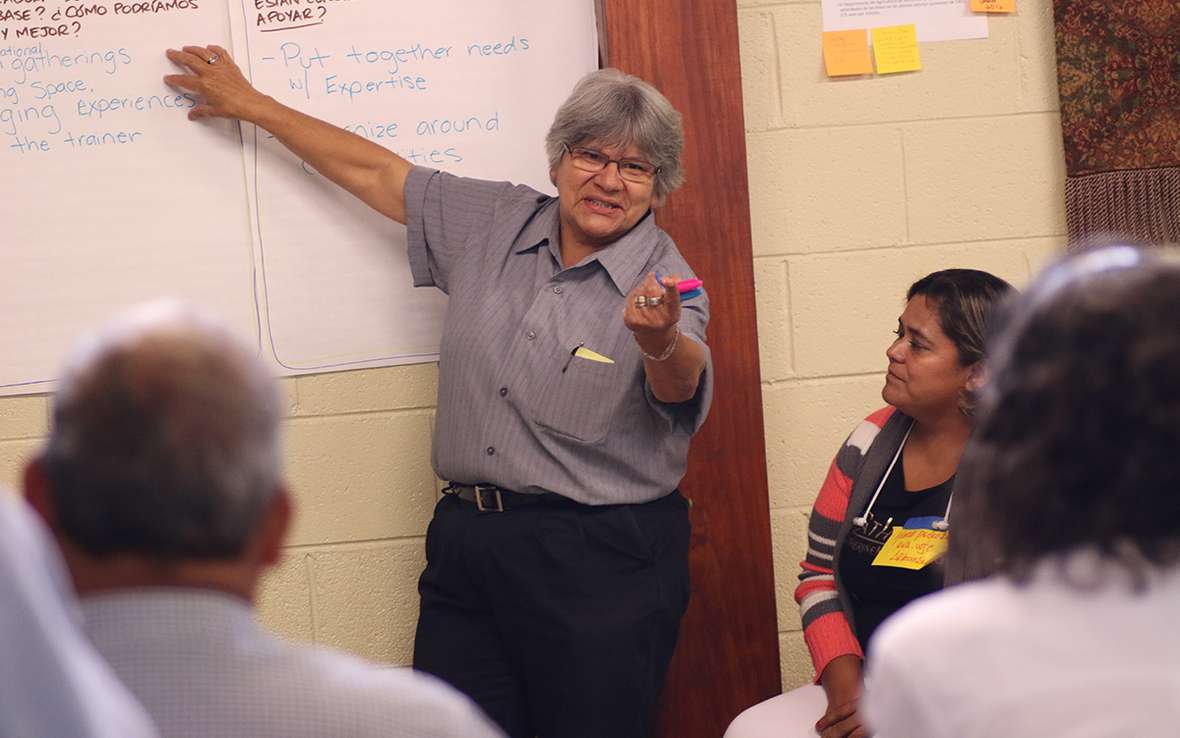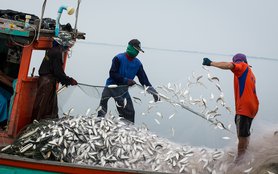The food system in the US is dominated by giant corporations that prioritize profits over everything else. Sen. Cory Booker, a longtime critic of agribusiness, has just introduced four bills to mandate better practices up and down the food chain.
The whole idea of “agribusiness” is disturbing. We’ve taken one of the most fundamental human activities—the labor and joy of creating and sharing food—and reduced it to numbers on a balance sheet.
For years, Oxfam has been researching and exposing problems in our food system, including farmworkers stretched beyond human capacity and poultry workers toiling in noisy, cold, damp environments without adequate rest or bathroom breaks.
Of all aspects of the US food system, meat and poultry production are among the most problematic—two areas we need to rethink from the ground up.
Here in the Global North, it’s easy to buy and eat animal parts. We find them in well-lit refrigerators all wrapped in plastic, and rarely get a window into the lives of the animals or the people who work with them.
However, a glimpse of what goes on in industrial animal operations—in the hatcheries, barns, slaughterhouses, and processing plants—reveals a lot of unnecessary blood, pain, fear, and exploitation.
Most everyone who peers behind the packaging agrees the system is deeply flawed. But standing up to the agribusiness giants is a formidable task.
Who is it good for? Corporations
The internal logic of capitalism dictates that corporations do whatever they can get away with to reap the biggest possible profits. In industrial agriculture, this means consolidation; vertical integration; automation; trimming costs for labor, animal welfare, and environmental safeguarding; leaning on fossil fuels; speeding up production; ignoring safety concerns; and lobbying to reduce regulation and oversight.
And reap profits they do—especially in challenging times. In late 2021, White House economic advisers reported that the four major meat conglomerates (JBS, Tyson, Cargill, Marfrig, which are responsible for processing 55-85 percent of all beef, pork, and poultry in the US) turned the pandemic to their advantage and tripled net profit margins (boosting profits by 300 percent).
The next year, JBS reported record profits of $4.4 billion, a 70% increase from FY21; Tyson reached a record $4.1 billion profit, a jump of 91%.
This at a time when the pandemic was raging through processing plants, making thousands ill and killing hundreds, failures in the supply chain were necessitating mass slaughter of animals, and consumer prices were skyrocketing.
Once again, the pandemic served to reveal and unleash a system based on exploitation, inequities, and suffering. While sending vast rewards to shareholders and executives.

Renewed efforts to rein in the industry
Senator Cory Booker (NJ) is pursuing a number of paths to rein in and dismantle the factory farming system, and challenge agribusiness in general.
As he notes, “Built by agribusinesses, the industrial livestock and poultry system is designed to maximize production—while externalizing risk and liability—to ensure corporate profits even when the system fails.”
On February 2, Senator Booker refiled three food-system bills and added a new one.
- The Farm System Reform Act would crack down on monopolistic practices, invest billions in the transition to a more resilient food system, and place a moratorium on large factory farms.
- The Industrial Agriculture Accountability Act would place the liability for disasters (such as pandemic and extreme climate events) on the corporations and industrial operators who profit the most from factory farming; it would require large meat and egg producers to plan for and pay more toward disaster response.
- The Protecting America's Meatpacking Workers Act would establish stricter ergonomic standards for workers and ensure that employees have prompt and proper access to toilets, among other provisions. It would also require companies to publicly report the number of employees who get sick during viral outbreaks.
- The Protect America's Children from Toxic Pesticides Act has been characterized as “the most robust pesticide legislation proposed since the inception of the EPA.” Pesticides pose grave dangers to farmworkers and their families, as well as to countless consumers.
“The fact of the matter is that our current food system is interconnected with so many issues of justice in America: racial justice, health justice, environmental justice, economic justice,” Booker said in a keynote speech at the National Food Policy Conference in July 2020. “And our food system is fundamentally broken. It fails to reflect our collective values. And it is not a dramatization to say that the way we produce and consume food in this country is quite literally a matter of life and death.”

Listening to workers
Many people have advocated for the kinds of protections in these bills—workers, organizers, experts. Martha Ojeda, executive director of the Workers Justice Alliance (a network of workers' centers that include many longstanding partners of Oxfam), stresses how important it is to make fundamental changes to the system.
"Workers in the food systems in this country face arduous conditions, get paid low wages, and are discouraged about speaking up for their rights. At the same time that they, literally, do the work that puts food on our tables, no matter the dangers,” she says. “We're so glad that Senator Booker listens to our communities, and grasps the urgency for legislative action to protect workers, as well as consumers, animals, and the environment."
Maybe it’s possible that some things should not be owned and maintained by profit-driven, shareholder-based capitalism. And that these things include what is closest to our humanity as individuals, and our well-being as community. Food. Health. Safety. Environmental protection. Criminal justice. The care of children and elders.
Senator Booker is issuing a call to challenge the norms and values that got us to this place, and to find a better way. Let’s show him our support.



